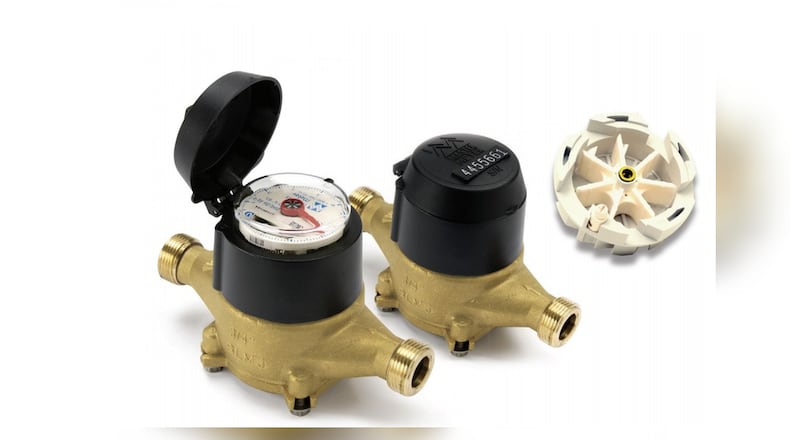“It’s going to be good for the city but it’s also going to be good for the customers,” said Public Utilities Director Adam Sackenheim. “Those customers, when it’s rolled out, are going to have real-time access to their data so they will be able to monitor water usage, they’ll have the same information the city has.”
The city invested $250,000 last year to test Master Meter’s AMI system as a proof of concept, installing 550 smart water meters at industrial businesses around the Seward and Port Union roads area. The city is currently testing the meters on 420 residential water customers on a $150,000 project. Based on the results thus far ― the residential project will wrap this fall ― it’s been a success, said Sackenheim.
The new metering system, which will provide information like real-time data, leak detection and critical alerts, would conservatively give the city an immediate revenue increase of around $525,000 in the first year, but officials from other communities told Sackenheim they saw larger increases.
The new AMI meters will, conservatively, increase the reading accuracy by 3.5%, Sackenheim said.
The city’s seen a 16% drop in residential water consumption over the past decade of the 20-year-old water metering system, but it has been offset by an increase in industrial customer usage. Part of that is likely due to more water-efficient appliances and low-flow fixtures, “but I have to think that a piece of that is our metering devices are starting to slow down so we’re registering less usage,” Sackenheim said.
The proposed system would eliminate Fairfield’s current need for staff to physically visit each water meter every month. Sackenheim said while its current system “is good” and eliminates data entry errors, “it’s extremely labor-intensive.”
He said other cities are ahead of Fairfield by installing these state-of-the-art smart water meters in recent years, but the city in the past five years has been focused on infrastructure needs.
“In my opinion, we had more critical, more pressing needs to address ... before we’d be in a position to take a stab at the intelligent smart metering,” he said.
The city has been “strategically aggressive,” Sackenheim said, with water main replacement over the past five years, and the condition of Fairfield’s underground water lines “has been and continues to be our most critical, pressing infrastructure need.”
There are plans in the next few years to replace water mains on Ohio 4 south of Bypass Ohio 4 and on John Gray Road and Pleasant Avenue.
The city has also rehabilitated three of its five water towers, with a fourth water tower to be rehabilitated next year. The city is also planning for a sixth water tower “to address our growing industrial demand,” Sackenheim said.
The citywide smart water metering project will be requested in the second quarter of 2022, which will replace meters of 13,700 water customers which services more than 44,000 residents.
Sackenheim said the $625,000 a year savings in reduced labor costs and new revenue captured will more than cover the expected annual payments of a bond of around $550,000.
About the Author

